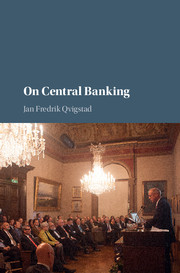Book contents
3 - On Making Good Decisions
Published online by Cambridge University Press: 05 July 2016
Summary
Introduction
When Hans Rasmus Astrup was appointed minister in Johan Sverdrup's government in 1885, he sold his business in Stockholm and moved back to Norway. As I mentioned in my lecture here two years ago, Astrup was at the time perhaps Norway's wealthiest man. On his return to Norway, he needed a place to live, bought a plot of land here in Drammensveien, and decided to build the house we are sitting in now.
The question might be raised whether it was a good decision to build such a large and ostentatious house. But Astrup was not just looking for a home for his family. The house was also intended to provide a venue for interdisciplinary and political discussions.
We all make many decisions every single day, some more important than others. And we all presumably want these decisions to be good ones. But how can we ensure that a decision is good? This is a weighty and far-reaching question. If I am to make meaningful contribution, I will need to limit my focus.
Norges Bank makes many decisions. The monetary policy decisions every six weeks are awaited with particular interest. Based on my experience from interest rate decision making, I will focus on how the quality of a decision can be assessed. Even though I am speaking from my own perspective, I hope I am able to touch on more general issues that are of wider relevance.
Independence Provides a Sound Framework for Interest Rate Decisions
Most countries have now delegated the task of ensuring price stability to the central bank. This is also the case in Norway. The government has set an inflation target for monetary policy and delegated the operational conduct of monetary policy to Norges Bank.
This framework can be regarded as an institutional solution to the problem of avoiding major mistakes. An independent central bank is better able to give priority to long-term interests over short-term gains.
That it is tempting, but dangerous, for a government to focus on short-term gains was a lesson Greek politicians learned in 2010. Government spending exceeded revenues over a long period. Accounts and official statistics were fudged.
- Type
- Chapter
- Information
- On Central Banking , pp. 67 - 96Publisher: Cambridge University PressPrint publication year: 2016

